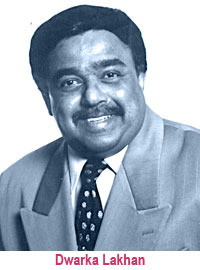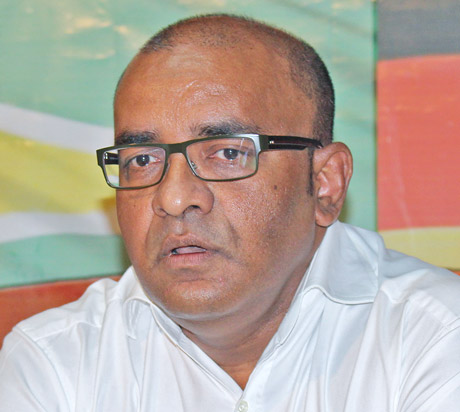Guyana Focus
competitive advantage

Plans to develop tourism have been in the making for more than a quarter century but success has been elusive, primarily due to ad hoc efforts and the absence of strategic plan that defines the objectives of the government and what it will take to achieve them.
Nonetheless, tourism picked up under the former PPP/C administration. The Caribbean Tourism Organization (CTO) noted that the country needs to aggressively pursue new and emerging markets in order to leverage its true potential. The CTO recognized that Guyana is one of the region’s most diverse destinations and is in a great position to promote its pristine rain forest and Sustainable Development Tourism to the world.
In recent years, Guyana has won several Caribbean tourism awards and has been featured on a number of international television programs, including the BBC, National Geographic Channel, the Discovery Channel and the History Channel.
However, the government is set to take a more strategic approach to developing tourism. According to the national budget presented last November, the government has completed a draft National Tourism Policy, which focuses on developing market-ready tourism products, enhancing the quality of service, generating increased employment, and improving tourism’s contribution to economic growth.
The Government also plans to undertake a stock taking exercise of potential sources of tourism products within the ten administrative regions, which will identify elements of nature, culture, heritage, community, and other assets that would serve as the basis for the development of tourism.
In its maiden 2105 budget, the government blamed poorly-resourced marketing initiatives for the sluggish growth in the industry which it described as “young in years and maturity.”
Then, it stated that it intended to at least double the marketing budget for tourism over the next five years with the aim of increasing its presence in various target markets and media.
The government also announced that it will take steps to measure tourism's contribution to the economy. Incidentally, there has never been any publicly available, measurable evidence on the financial performance of the sector.
In its quest to measure tourism’s contribution the government said it would accumulate relevant data to support marketing strategies and resource allocation to the industry. This will be aided by the implementation of a tourism satellite accounting system sometime before 2020.
The prerequisite for implementation is the availability of reliable source data in areas such as accommodation, visitor spending, and supplier profiles which the government hopes the private sector will assist in providing.
The government also stated that it will focus on attracting more visitors; develop and enforce service standards; provide hospitality training to boost the quality of visitor experience; and offer an expanded menu of tourism products and services. It also intends to develop a Hinterland Tourism Development Plan to leverage the country’s eco-tourism potential.
Incidentally, last year the country hosted several events, among them a Coconut Festival, GuyExpo, the Building Expo, and the Wedding Expo, which served to bring together entrepreneurs with the aim of attracting new tourists.
Incidentally, as a tourist destination, Guyana does not boast the features of traditional tourist destinations - blue water, white sandy beaches and surf. However, it is a haven for eco-tourism and a nature lovers’ paradise. It was identified a few years ago as the best eco-region in the Caribbean by Caribbean World, a travel magazine, coming out ahead of competitors such as Belize, Dominica and Venezuela.
Arguably, the country is blessed with characteristics that have become increasingly popular with eco-tourists who are bored with beaches. These tourists are environmentally sensitive and culturally aware and will not follow the herd. They are looking for individual expression and relaxation. They are attracted to the exotic fauna and flora of countries such as Guyana; to the adventures of safari-like tours; to the sheer beauty of the hinterland; to the myriad of resplendent water falls; and to nature away from concrete jungles.
In developing its Hinterland Development Plan, the government has proposed a review of the cost of internal travel, including air travel to improve accessibility to the various regions.
Ironically, air travel from foreign destinations to Guyana also leaves much to be desired. Although more airlines are targeting Guyana, travel to Guyana is currently unreliable at best.
For tourism to flourish, the government recognizes that a cross-sectoral effort is required among the government, the private sector and civil society – an area which the previous administration has also been focusing on.
Historically, almost 50% of all tourist arrivals originate from the US, followed by about 25% from the Caribbean, 15% from Canada, and the remainder from Europe and the rest of the world. More recently, Guyana has attracted an increasing number of visitors from Suriname and Brazil, indicating a shift in the origin of visitors to the country.
For tourism to succeed the country must adopt a multi-pronged strategy. The government as a whole must demonstrate its belief in Guyana’s tourism potential by making appropriate investments in the sector – both human and financial. Tourism cannot be left entirely to the private sector and increasing the marketing budget alone will not drive its success.
In addition to a National Tourism Plan, the government must also establish a regulatory framework to facilitate the development of tourism. Promoting awareness about tourism among the population should share the government’s vision. Tourism cannot prosper without the blessing of the population which must in turn understand the benefits they will get in return from tourism. Information about the tourism resources of the country must be effectively communicated by both the public and private sectors to the marketplace.
In marketing Guyana, the focus has to be on selling specific attributes unique to defined target groups. In essence, this means marketing what the country has to offer. There is no reason to raise expectations by overselling the country. The country must also have some formal infrastructure which functions in an organized manner - including accommodation, transportation, telecommunication, tour and travel operators, financial services, food service companies, etc. The existing supporting infrastructure leaves much to be desired.
Political conditions and crime are also important considerations for tourists. Unreliable air transportation is perhaps one of the biggest deterrents. The cost of hotels in Guyana is also uncompetitive.
Without a doubt, tourism creates its own challenges. There is no homogeneity in what tourists want, given individual tastes and preferences and discriminating spending patterns. It is also the industry most sensitive to economic, political and social patterns. Therefore, developing and maintaining a competitive advantage is the only thing that will ensure viability.
So far, efforts at positioning Guyana as a tourist destination have been fragmented, partially because neither the private sector nor the government has had a clearly defined and relevant strategic vision about how to develop tourism.

Jadgeo gave few details to back his claims, but assured that legal experts were preparing papers to file charges against them. “We don’t do our business like how they (government) have been talking. We are not talking about going to jail and all of that. We are preparing the documents and this is why we have grave concerns about what would happen at the Integrity Commission,” he said.
He hinted that government has sent home all the staff of the Integrity Commission, leaving all the returns behind. “We know that many of them broke the law and did not file returns so we are worried that they could just stick these things in and they would tamper with the records,” said Jagdeo.
The former President said the PPP hopes to file private criminal charges against the estimated 50 percent salary increase that government gave its ministers. “The basis for which they are looking at the Pradoville issue is that people illegally transferred assets to themselves to enrich themselves… Then we can prove a case in court that they have taken financial assets of the State based on a Cabinet decision that they themselves made to give themselves an increase bigger than anyone else: that is enrichment also,” he said.
He said the private charges would also provide an opportunity to test the President’s immunity from prosecution.
His announcement comes against the background of the Special Organised Crime Unit (SOCU) of the Guyana Police Force and the State Assets Recovery Agency (SARA) intensifying their probes into alleged financial and other property crimes by ministers of the then PPP-led administration.
The Opposition Leader hoped that the British adviser here would help the PPP “prepare our case against individuals in government.”
Jagdeo said he suspects that government is hiding something but failing to take up his call to hire an international firm to “track and trace assets that people hold abroad.”
The former Guyanese leader, and other PPP ministers and top government officials have been under SOCU’s radar for several months now in connection with possibly acquiring large tracts of seaside housing lands at Sparendaam/ Goedverwagting, East Coast Demerara at way below the market prices.
to another estate
Nearly 100 sugar workers on Monday protested outside of the Ministry of the Presidency, demanding that they be paid their severance packages in full.
“They paying severance to the factory workers and so; wha happen to the cane cutters and the cane transport workers? We are entitled to our severance, and we want it, because we not going to Uitvlugt,” Ricky Rambir, Field Secretary, Wales Estate demanded.
He explained that even if the workers are to be transferred to take up positions at the Uitvlugt Estate, the wages being offered by GuySuCo are insufficient. Then there is the added hassle of a 22-mile journey to and from work, daily.
“We are entitled to our severance, and we want it,” another cane harvester added.
Komal Chand, head of the Guyana Agricultural and General Workers Union (GAWU) was also on the picket line, to give support to the protesters.
“The distance is very far. When you travel the 22 miles to get into the Backdam, you still have to trek a very long distance into the Backdam to take up work,” Chand highlighted.
After several similar protests, the workers are still hoping to get the attention of President David Granger.
Representatives of the troubled employees had already met with Prime Minister, Moses Nagamootoo, who promised that he will personally look into the source of their frustration. However, at that time, the severance payments were halted as a result of an injunction filed by Member of Parliament and Union Lawyer, Anil Nandlall.
It was explained then, that GuySuCo had failed to consult the relevant unions before entering negotiations with the workers themselves.
“In such an instance, the workers would not be getting exactly what they deserve, after decades of service to the corporation,” Nandlall pointed out.
But frustration eventually outweighed patience, and the sugar workers moved to independently sign a petition aimed at quashing the injunction filed by Nandlall.
Before that petition could reach the courts though, Nandlall’s injunction achieved the desired effect.
GuySuCo representatives met with leaders of the National Association of Agricultural, Commercial and Industrial Employees (NAACIE), as well as GAWU to discuss fair payments, which were later agreed to by GuySuCo, the representative Unions and the sugar workers themselves.
“The legal aspect is completed, so right now, I’m not sure what is causing the hold up,” Nandlall added.
Shortly after assuming office, the coalition government took the decision to close down the estate, because of poor performance by the entire sugar corporation, which continues to spiral downwards.
“But if that is the case, let them go ahead with the shutting down, but give the people their money. Give we, we money. We work hard and sweat fuh it,” one sugar worker protested.
And as the placards indicated, the workers are standing firm, in their demand. The union says that it is their legal right to refuse a transfer to another estate.



To advertise in ICW call
Call 905-738-5005